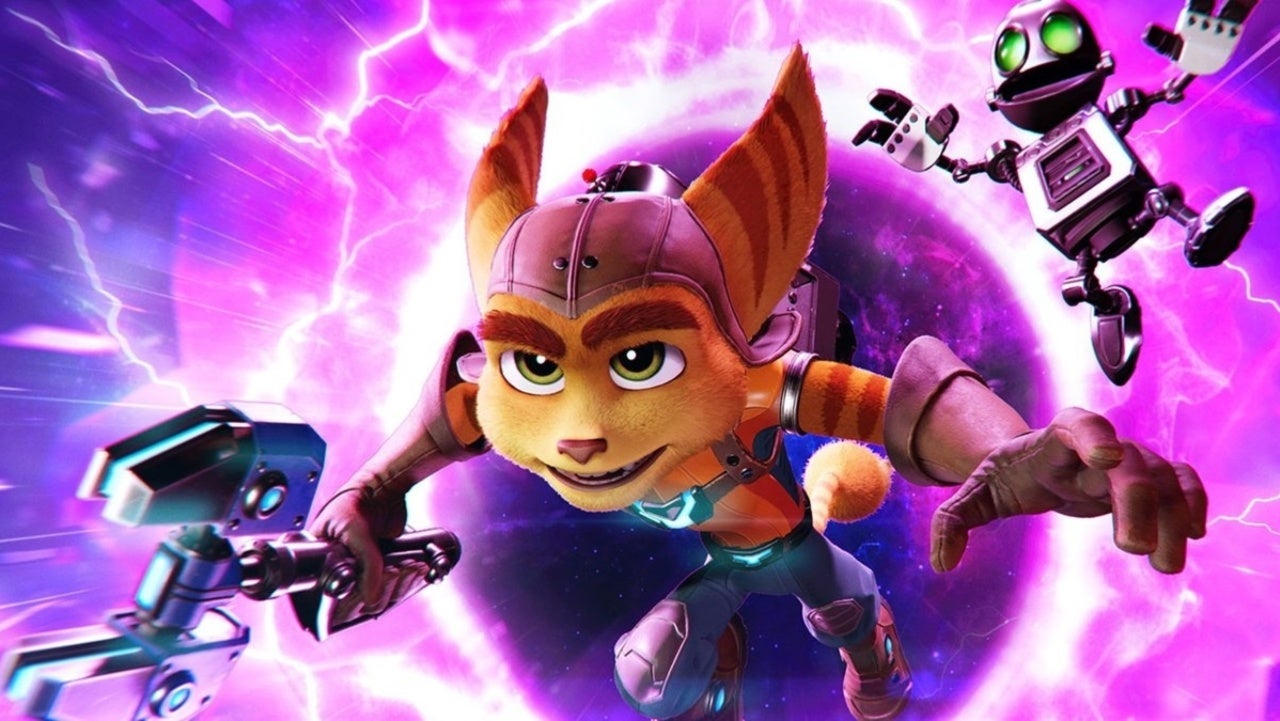Mascot platformers were once the biggest properties in console gaming.
Anyone and everyone took their shot at creating memorable, usually fluffy avatars that were meant to become synonymous with the platform they appeared on. Ratchet and Clank is only of the few series, however, (especially outside Nintendo) to survive through to the 9th generation of consoles however.
A critically-acclaimed launch title for the PlayStation 5, Ratchet and Clank: A Rift Apart was a showcase for the power of the new PlayStation hardware, in particular the extremely fast SSD and associated decompression blocks. Using this hardware, the game featured incredibly impressive portals that moved you between entire worlds at the whim of the player, something entirely impossible on the slow mechanical hard drives of the PlayStation 4, not to mention its underpowered CPU cluster.
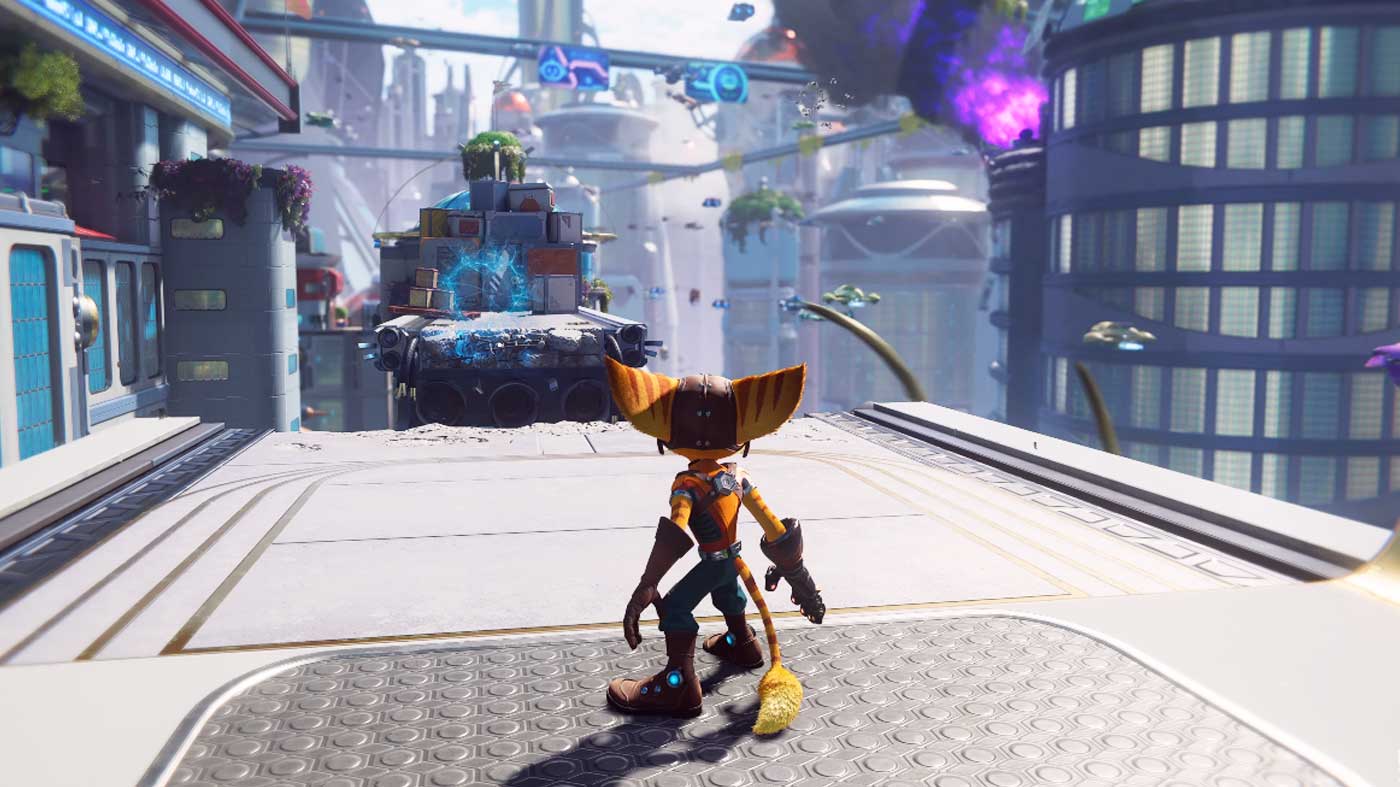
Now in-house porting studio Nixxes continues their overall excellent work in making PlayStation a powerhouse on PC too.
But Sony has had a bit of a mixed record with PC releases lately, with The Last of Us Part 1 coming in at a particularly shocking state at launch (though much improved now). Luckily, Nixxes has done a generally excellent job with this port, and some bugs aside it is a solid, scalable PC port that nearly every PC gamer will find works with their rig, to some degree or another.
But to discuss porting strategy for a second, PlayStation continue their bizarre habits of not starting off the PC audience with the beginning of the franchise. It is strange to see A Rift Apart release ahead of the 2016 PlayStation 4 game. This was an issue with the Uncharted: Legacy of Thieves Collection too (imagine diving into Uncharted 4 without any background on Nathan Drake or Chloe Fraser) and it continues for another flagship PlayStation franchise here. It seems that PlayStation is only interested in porting PlayStation 5 titles at this point – and any preceding games that help introduce and make sense of the world aren’t getting their turn on PC. I would strongly encourage PlayStation to revisit this approach, as PC gamers deserve to have the full picture of a franchise. For Ratchet and Clank especially.
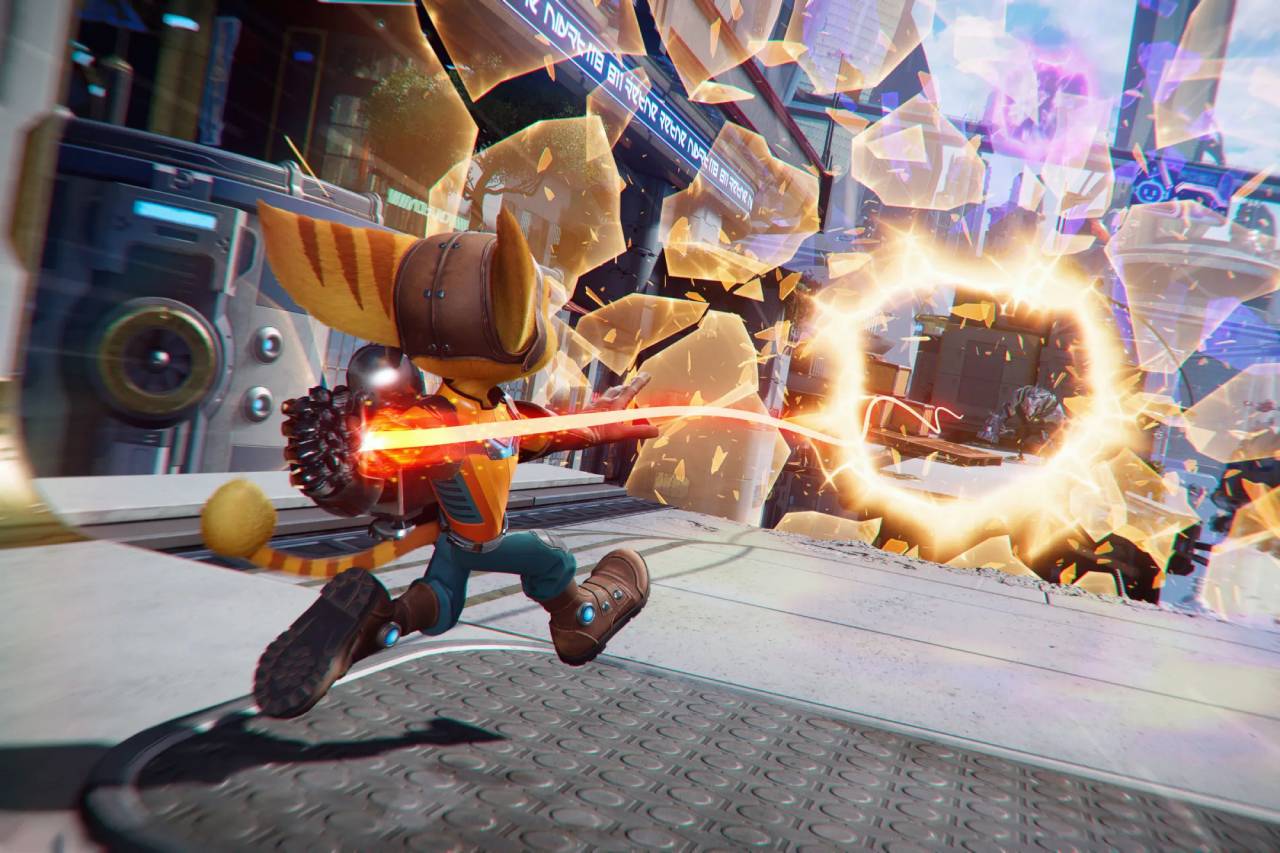
Given the 2016 PlayStation 4 game was a soft reboot in line with the movie’s release, this would have been a perfect opportunity to start with that game before building up to A Rift Apart. For players new to the franchise diving straight into this game does assume quite a bit of familiarity with the characters and their backstories.
One of the key selling features for the original release was the innovative use of the PlayStation 5’s SSD drive, a massive upgrade over the slow laptop hard drives as found in last gen consoles. The game is uniquely coded around this capability, and unfortunately this does have slight implications for the PC release. Even with a very high end CPU and 7,000MB/s PCI 4.0 NVMe drive combination, loading still won’t be quite as fluid as on the PlayStation 5. It results in some small stutters and differences that you’ll probably only notice if you’ve played the game before on console.
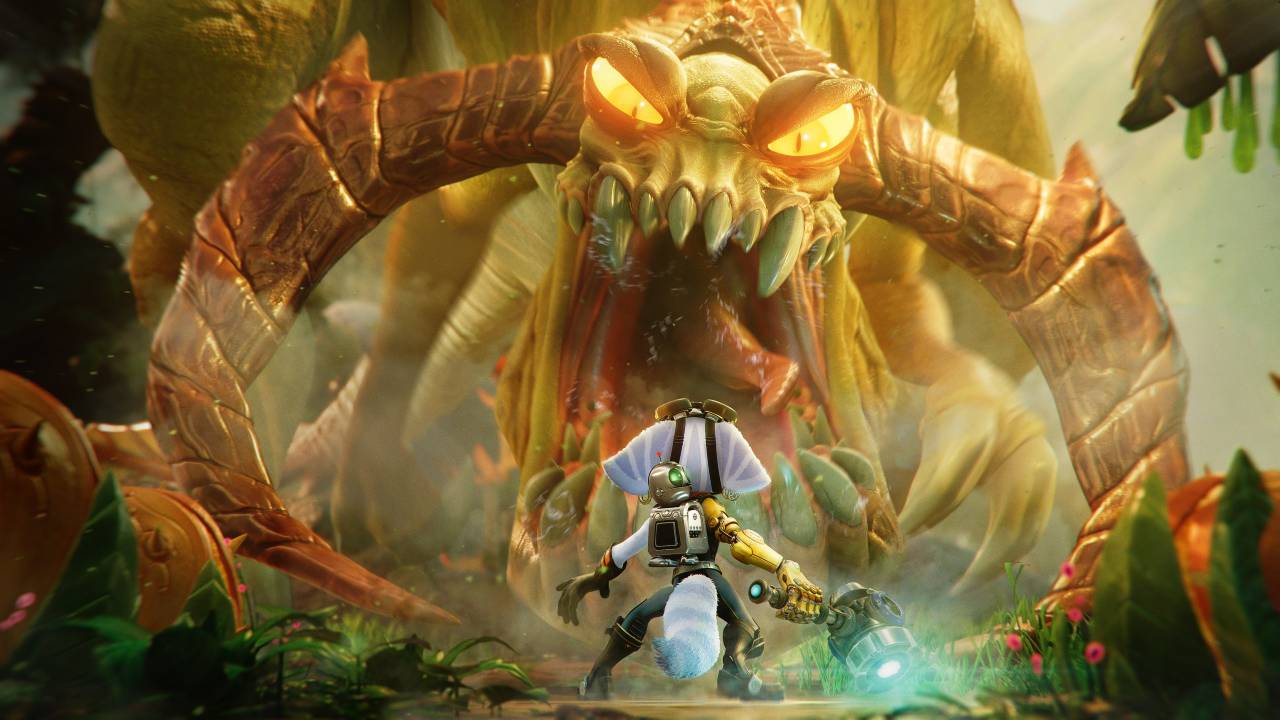
The port is otherwise very competent, with, since it uses the same engine, the same basic setup as the two PlayStation 5 Spiderman titles on PC. There’s a wide range of graphics and display options, and of course all the original release’s content is present and accounted for.
You have a choice of 3 different temporal upscaling options (DLSS, FSR2 and XeSS), all of which present passable images, and it was great to see two new additions to the game’s ray tracing arsenal, even if current hardware’s performance can’t quite keep up with their demands.
At the other end of the scale, A Rift Apart scales down excellently to lower-end hardware, and playing through such a full-featured title on the Steam Deck was an excellent experience. I could manage a solid 30FPS using FSR2 or XeSS temporal upscaling which still produced a pleasing image, in stills and in motion. This is fantastic to see, as some newer titles – especially those that are current-gen only on console – haven’t quite been able to work properly on Valve’s handheld device.
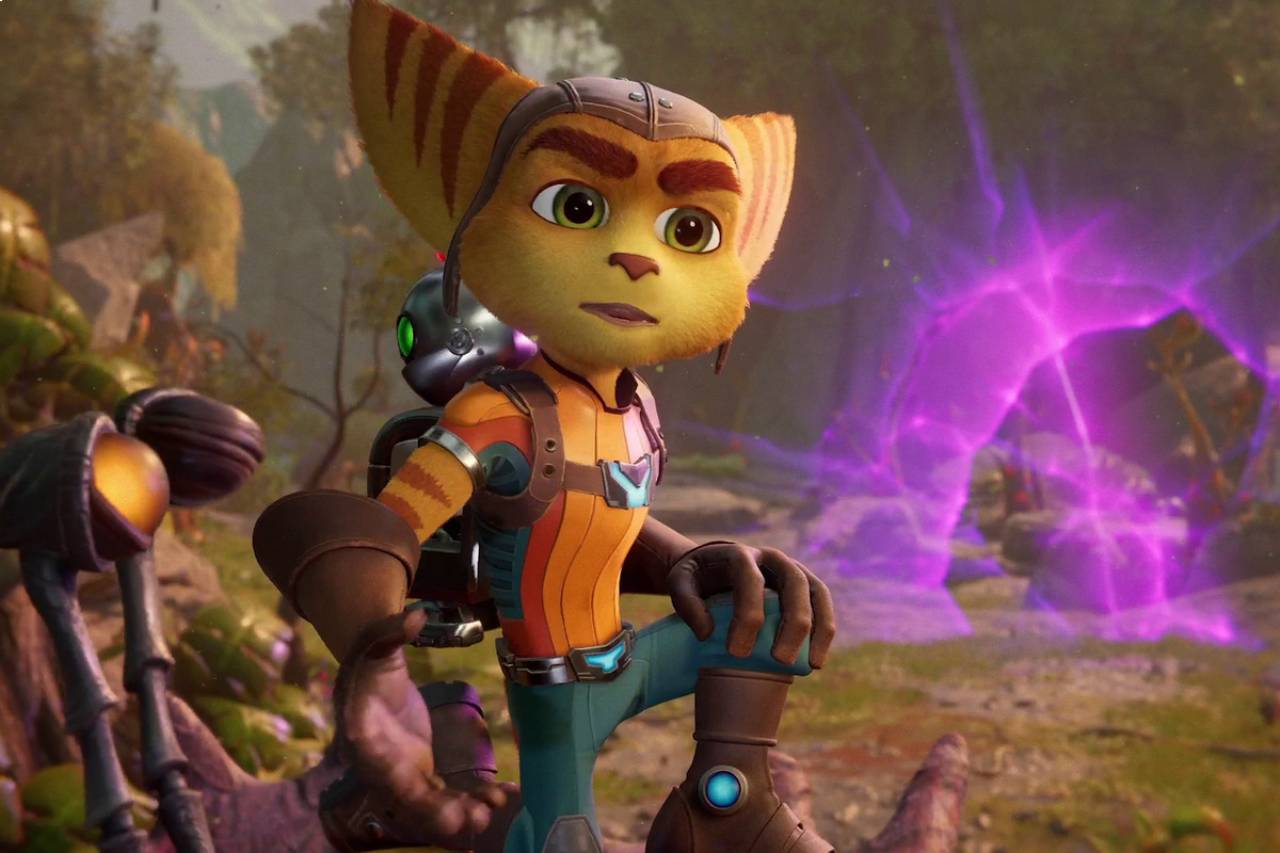
So is Ratchet and Clank: A Rift Apart worth a replay if you already tried it on PlayStation 5?
Well, if you have a very high end PC rig then you’ll get higher resolutions, higher frame rates and ray-traced shadows and ambient occlusion that the PlayStation 5 is not able to produce. But the PlayStation 5 version remains an excellent version, particularly in its 40FPS mode on compatible 120Hz 4K TVs like my LG C2. There aren’t any new exclusive game modes or content to speak of so those looking for a dramatically different experience on PC won’t find it here.
To be clear, this is because the PlayStation 5 version is excellent, not due to any fault in the release on either platform. Nevertheless, the PC release will be the definitive edition going forward, especially as hardware matures to match the ambition of its included feature set.
It has been a pleasure to see Sony and PlayStation embrace the PC as a new platform for expanded reach of their most precious franchises. This latest entry is an excellent addition, which while not transformative to the core experience, will stand the test of time as the new definitive edition. More importantly, it has launched in a state far better than some other recent PC releases.
And while I did experience some bugs and oddities, porting house Nixxes has demonstrated they have the capabilities and commitment to address these. Onto the next PC port – The Last of Us Part 2, please!

Released: July 2023
Rating: PG
Platforms reviewed: PC
Genre: Action
Developer: Insomniac Games, Nixxes
Publisher: Sony

